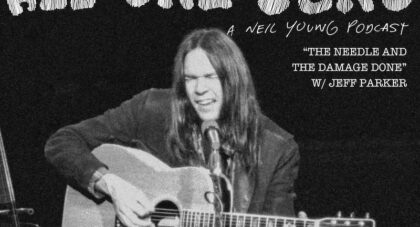If there's one thing I've learned about talking to A.A. Bondy over the years, it's that conversations can take unexpected turns - sometimes fruitful, sometimes dead ends - but you also never quite end up where you expected. It's a similar spirit to what seems to occupy his work as a songwriter. AD talked with Bondy this past week about his new album, Believers, experiences since his first solo records, discomfort with his own work, liminal states and how, whether autumn or summer, it's all about perspective.
Aquarium Drunkard: It's been a couple of years since your last record, When The Devil's Loose. How have things been going for you after these first two albums?
A.A. Bondy: Well, you know, I've had so much experience crammed into the first four years [since the release of his debut, American Hearts - ed.], that it seems like a lot longer. Prior to that album coming out, there was this dead zone in terms of touring or anything like that. It came out in 2007. The last time I'd toured with a band was 2003. 2008, 2009 - I've never toured that much in my life. Even more so when the second record came out. So, I guess in some ways, everything sped up. Which was cool in a lot of ways. I guess if I look back at it - it's just a weird little trip. There's never been this situation where you walk outside your door one day and things have changed entirely. You go outside and a brick has been moved six inches to the left, but over time, a whole building moves. So it's tricky. It's kind of changed slowly in front of our faces. I don't know who this 'we' is I'm talking about. [laughs.]
AD: The royal 'we.' [laughs]
AAB: Exactly. Back when we wrote [Believers], we were very tired from all the touring we'd been doing. [laughs] The whole idea of getting older is kind of psychedelic in its own way. Not actually psychedelic. But you actually think about time as a construct and the way you perceive things and just the mindset you carry forward and the things you discard. It's just a weird job that I have. [laughs] I look at two years gone by, or three years, or record to record, some things change not a bit and other things do a lot.
Only the good shit. Aquarium Drunkard is powered by its patrons. Keep the servers humming and help us continue doing it by pledging your support.
To continue reading, become a member or log in.


